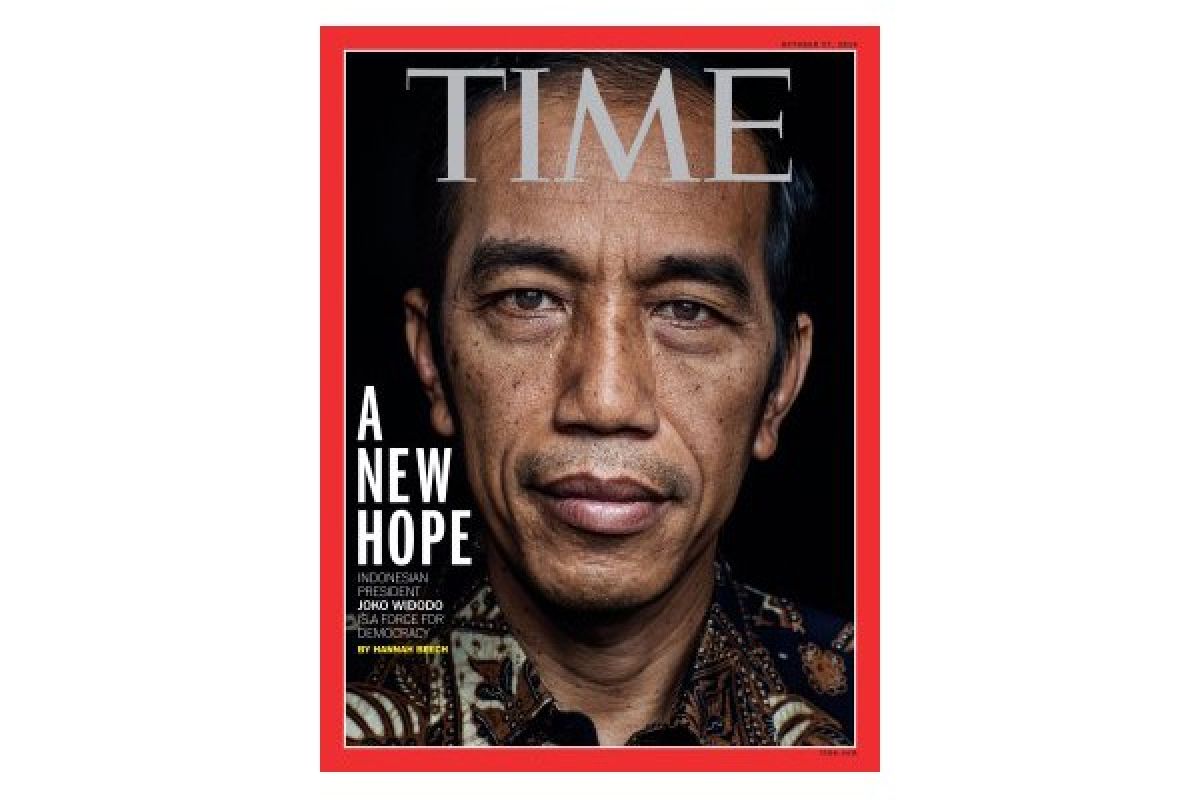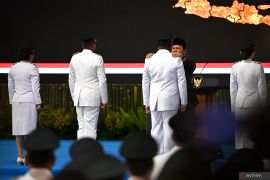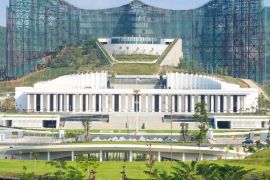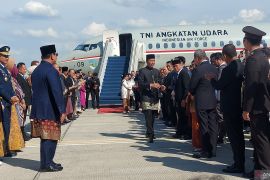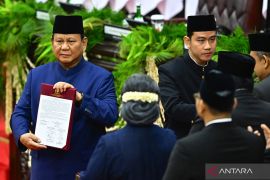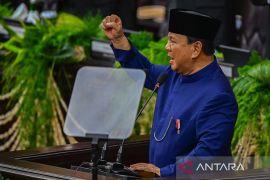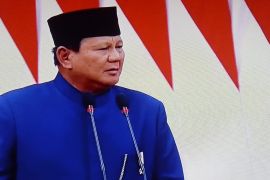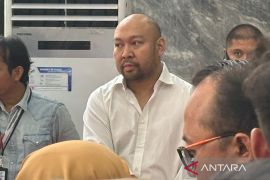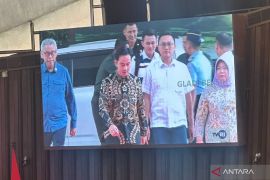Following political reform that started in 1998, Indonesia has implemented direct presidential elections since 2004 and direct legislative elections since 2009, turning the country into the world`s third largest democracy.Jakarta (ANTARA News) - October 20, 2014 is the day that has been waiting for by millions of Indonesians to witness the inauguration of its seventh president, entrepreneur-turned-politician Joko "Jokowi" Widodo.
A cadre of the Indonesian Democratic Party of Struggle (PDIP), Jokowi, 53, was mayor of Central Javas town of Solo, from 2005 to 2012. He won the Jakarta gubernatorial election in 2012. And after two years as Jakartas governor, in July 2014 he decided to run for presidency.
Jokowi is the second president elected in direct presidential election. He and his running mate M Jusuf Kalla won 53.15 percent of the total votes in the presidential election held on July 9, 2014, while their rivals, Prabowo Subianto and his partner Hatta Rajasa secured 46.85 percent.
Following political reform that started in 1998, Indonesia has implemented direct presidential elections since 2004 and direct legislative elections since 2009, turning the country into the worlds third largest democracy.
Susilo Bambang Yudhoyono became Indonesias first directly elected President in the 2004 election, and he was reelected in 2009.
Zulkifli Hasan, the new speaker of the Peoples Consultative Assembly (MPR), as the organizer of the presidential inauguration, promised that the important ceremony to run smoothly, as it will showcase Indonesias success in implementing democracy.
"It should be made a success because it is our image, Indonesias image that will be seen by the Indonesian people and the international community," Zulkifli, a politician of the National Mandate Party (PAN), stated recently.
Some Rp1 billion has been allocated for the presidential inauguration ceremony. "The budget for the inauguration has been set at Rp1 billion. It should be as economic as possible," the MPR speaker stated.
The budget is considered economical, given the fact that 1,200 people, including 690 MPR members and representatives of foreign nations, have been invited.
"Spending Rp1 billion on an event with 1,200 invitees is reasonable, I think. Its neither too lavish, nor too cheap," he remarked.
Hasan had presented personal invitations for the presidential inauguration ceremony to dignitaries such as President Susilo Bambang Yudhoyono, Vice President Boediono and President-elect Joko Widodo, as well as former presidents of the country, Megawati Soekarnoputri and B. J. Habibie.
The speaker also met with the Chairman of the Gerindra Party, Prabowo Subianto, PAN Chairman Hatta Rajasa, Golkar Party Chairman Aburizal Bakrie, and Nasdem Chairman Surya Paloh to invite them to the event.
Eight foreign heads of states/governments and 10 ministers have confirmed their attendance at the ceremony. Among them are the President of Timor-Leste Taur Matan Ruak, Sultan Haji Hassanal Bolkiah of Brunei Darussalam, PNG Prime Minister Peter ONieill, Australian Prime Minister Tony Abbott, Prime Minister of Singapore Lee Hsien Loong, Prime Minister of Malaysia Dato Sri Mohd Najib bin Tun Abdul Razak, Prime Minister of Haiti Laurent Salvador Lamonthe, and former Japanese prime minister Yasuo Fukuda as special envoy of the Japanese government.
Other foreign invitees include Deputy Speaker of the Chinese parliament Yan Junqi, Chief of the Vietnamese administration Vu Duc NDu, Foreign Minister of New Zealand Murray McCully, special representatives of South Korea Kim Tae-whan and Ham Jin-kyu, Thai Deputy Prime Minister/Foreign Minister Tanasak Patimapragorn, Dutch special envoy Dr. Tjeek Willink, the U.S. Secretary of State John Kerry, the British Secretary of State Philip Hammond, and Russian Industry Minister Denis Valentinovich.
Indonesias Police has deployed at least 24,815 personnel to secure the inauguration ceremony held at Parliament Building in Senayan, as well as the post-inauguration procession taking Jokowi from Senayan to the Presidential Palace located on Medan Merdeka Utara street.
"Until the post-inauguration event, until (the procession is) heading the palace, we will deploy 24,815 personnel consisting of the National Polices operational task force," National Police Chief General Sutarman said after a coordinating meeting attended by Speaker of the Peoples Consultative Assembly (MPR) Zukifli Hasan and Chief of the National Defense Forces (TNI) General Moeldoko at Parliament Building, recently.
"(After the inauguration), Mr Jokowi will head to HI Circle before proceeding to the Palace. From HI Circle, he will go to the Palace by a carriage," Gen. Sutarman stated.
The police personnel also guard foreign dignitaries attending the inauguration ceremony.
Susilo Bambang Yudhoyono, who cannot run again after two terms in office, earlier expressed support for the success of the inauguration ceremony. "Pak (Mr) SBY (Susilo Bambang Yudhoyono) will come earlier to welcome state guests," Zulkifli Hasan said.
Since Indonesias Independence in 1945, the country has had seven presidents. Sukarno led the country as the first president from August 1945, until March 1967; Suharto from March 1967 to May 1998; Bacharuddin Jusuf Habibie from May 1998 to October 1999; Abdurrahman Wahid from October 1999 until July 2001; Megawati Sukarnoputri from July 2001 until October 2014; and Susilo Bambang Yudhoyono from October 2004 until October 2014.(*)
Reporter: Fardah
Editor: Heru Purwanto
Copyright © ANTARA 2014
